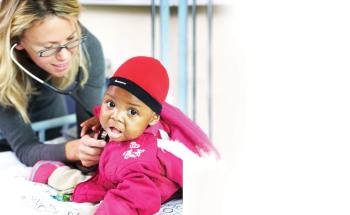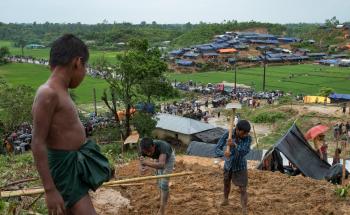
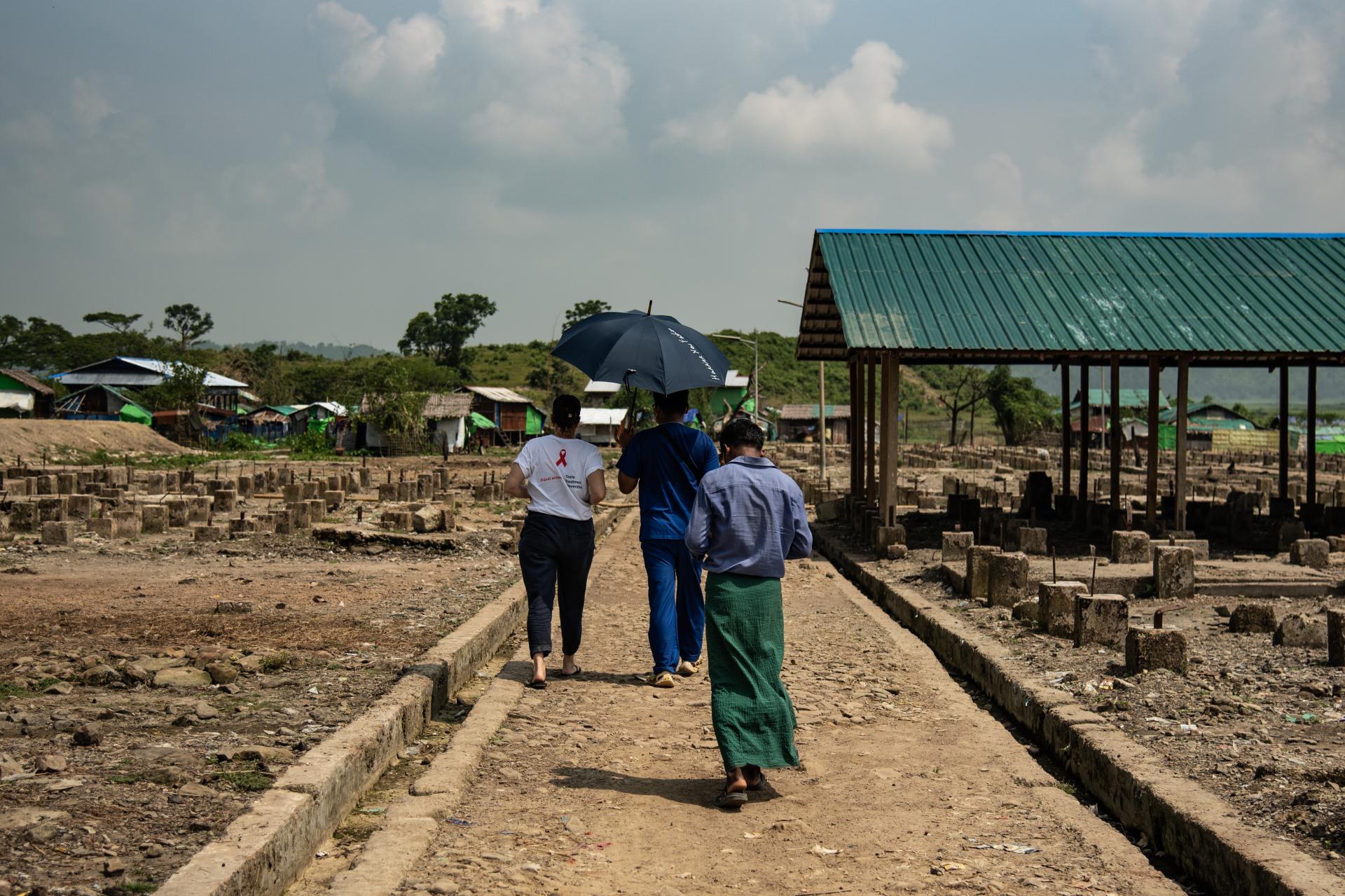
Myanmar
Monsoon flooding and typhoon Yagi displaced over 3.5 million people in 2024, adding to the severe suffering already faced by communities since the military seized power from the elected government in 2021.
In June, fighting intensified between the Myanmar armed forces and various ethnic and resistance groups, severely affecting Doctors Without Borders (MSF)’s ability to provide services across Rakhine, Shan, and Kachin states.
Our Activities in 2024 in Myanmar
Data and information from the International Activity Report 2024.
981
981
€13.8 M
13.8M
1992
1992
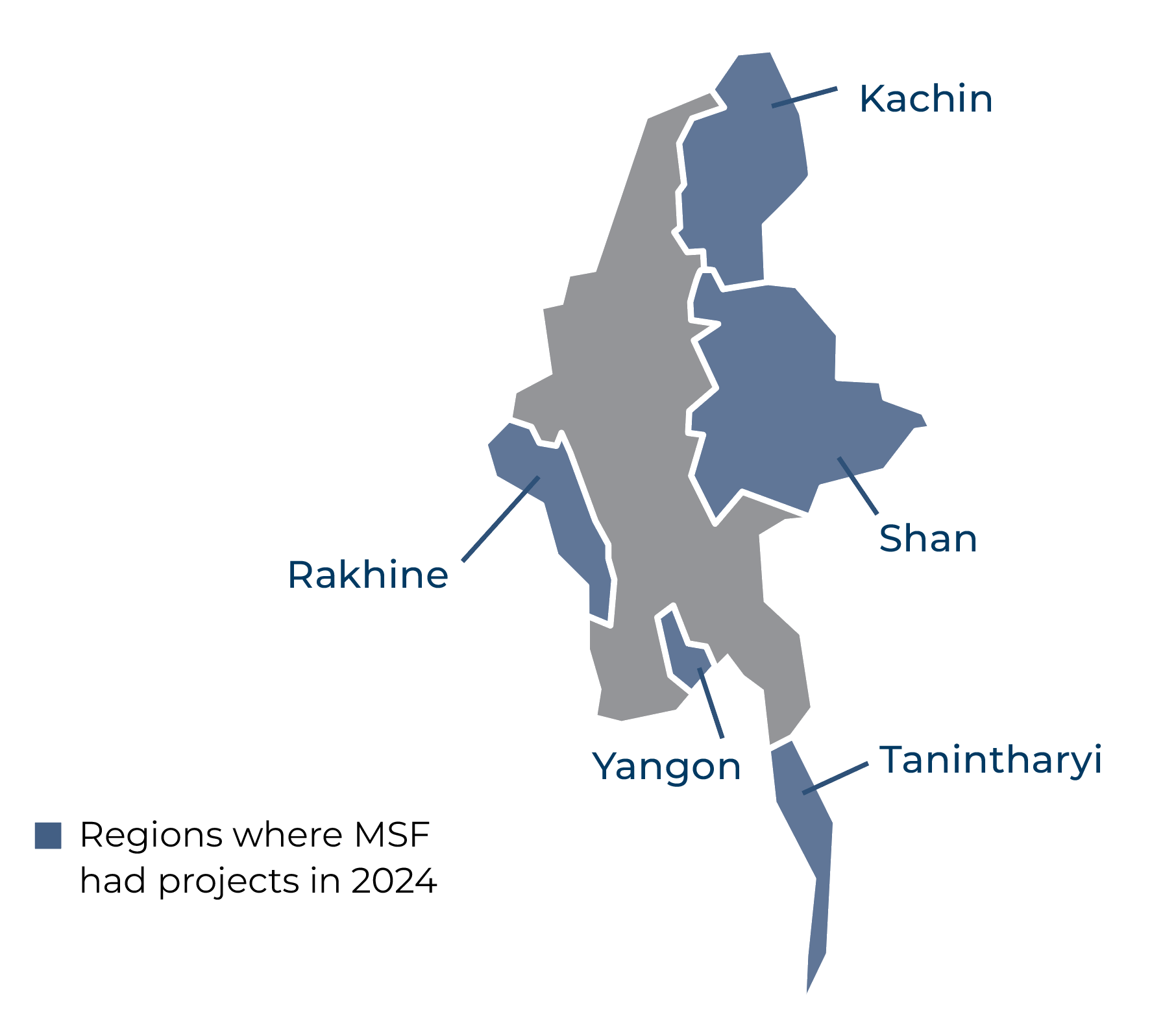
In northern Rakhine, we had to indefinitely suspend activities at 14 clinics across Rathedaung, Buthidaung and Maungdaw townships in June. This followed an earlier suspension in April, when our office and pharmacy in Buthidaung were destroyed during horrific violence. For many local communities, these clinics were their only accessible healthcare options.
In eastern Rakhine, we were unable to run previously authorised mobile services due to the authorities’ refusal to issue travel permits. This meant we had to resort to alternative strategies, such as teleconsultations and office-based clinics.
In northern Shan, we were forced to suspend our activities in Lashio and Muse townships, where we had focused on sexual and reproductive health and paediatric care, though we resumed services in Muse in October.
In Kachin, while escalating violence forced us to suspend activities in Bhamo, we continued to address the critical health needs of people in Myitkyina, Hpakant, Mogaung, and Mohnyin, by supporting the national HIV and tuberculosis (TB) programmes. We also provided care for victims and survivors of sexual and gender-based violence, sexual and reproductive healthcare for pregnant and lactating mothers, and general healthcare for children under five.
In Yangon, we maintained our support to Aung San TB hospital, and started to offer hepatitis C screening and treatment and hepatitis B vaccinations.
In Tanintharyi region, in addition to HIV care, we ran general health services, including treatment for non-communicable diseases such as diabetes, and sexual and reproductive healthcare. In 2024, we expanded these services to cover Kawthaung, Myanmar’s southernmost district.
IN 2024

163,000
163,
7,140
7,14
479
479
460
46


Fieldworker: Sandra Githaiga "I felt I had a good reason to be there"
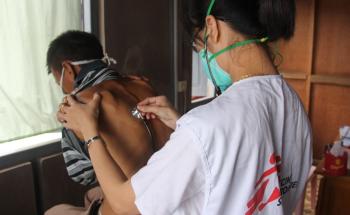
Myanmar: MSF acknowledges encouraging dialogue on Rakhine but clinics remain closed
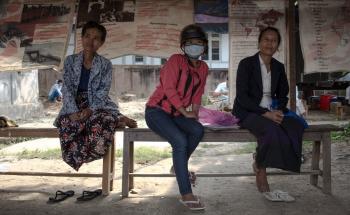
Myanmar: MSF to resume HIV/AIDS and all other activities in Kachin, Shan and Yangon but concerns remain
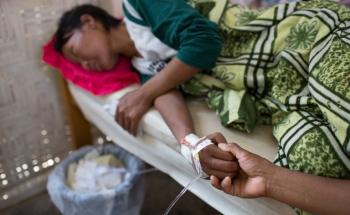
MSF ordered to cease activities in Myanmar
